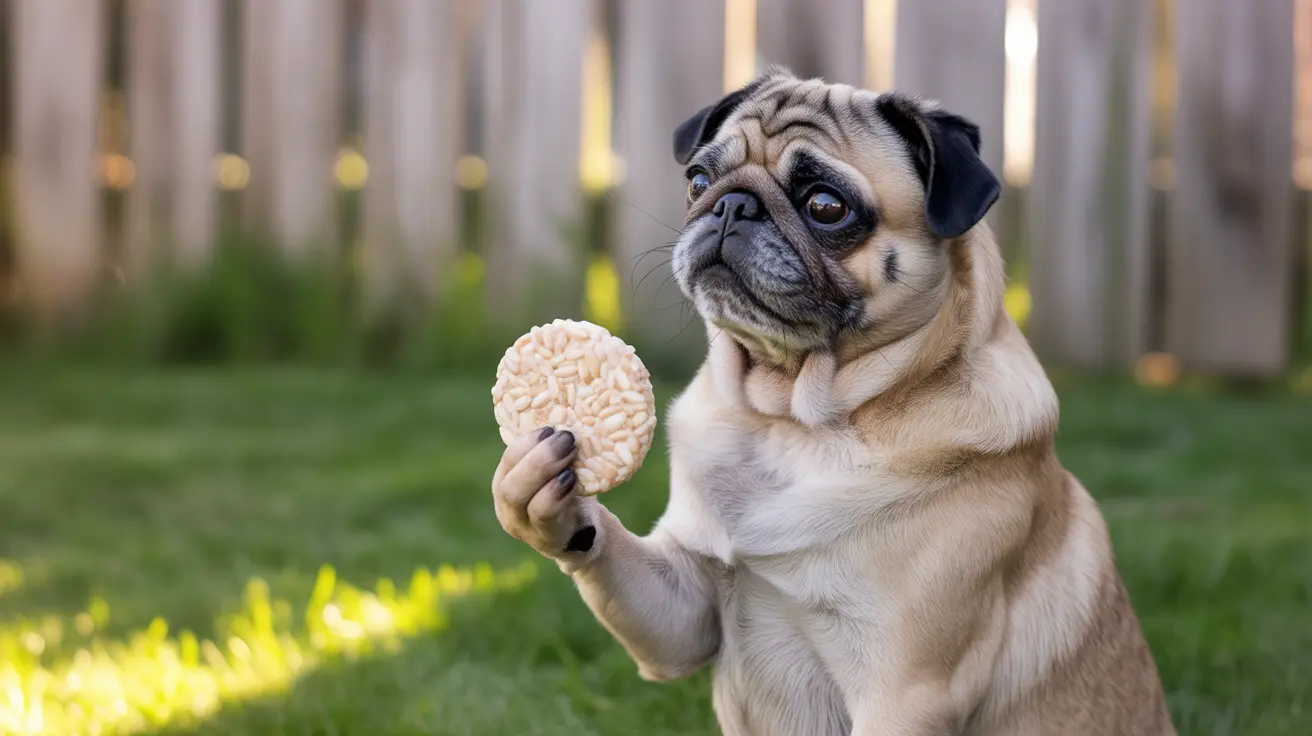As pet owners increasingly share their snacks with their four-legged friends, many wonder about the safety of rice cakes for dogs. While these light, crunchy snacks are a popular low-calorie option for humans, it's essential to understand whether they're appropriate for our canine companions. Let's explore everything you need to know about feeding rice cakes to dogs.
Understanding the do's and don'ts of sharing rice cakes with your dog can help prevent potential health issues while allowing you to safely offer this treat in moderation. This comprehensive guide will cover safety considerations, nutritional value, and best practices for incorporating rice cakes into your dog's treat rotation.
Safety Considerations for Feeding Rice Cakes to Dogs
Plain, unsalted rice cakes are generally safe for dogs when offered occasionally as a treat. Since rice is a common ingredient in many commercial dog foods, the basic component of rice cakes isn't toxic to dogs. However, there are important safety guidelines to follow.
The key to safely sharing rice cakes with your dog lies in choosing the right type and serving them appropriately. Only plain, unflavored rice cakes should be considered, as flavored varieties often contain ingredients that could be harmful to your pet.
Potentially Dangerous Ingredients to Avoid
When selecting rice cakes for your dog, be vigilant about avoiding these harmful ingredients:
- Chocolate or cocoa flavoring
- Xylitol (artificial sweetener)
- Garlic or onion powder
- Added salt or seasonings
- Artificial flavors and preservatives
- Sugar or artificial sweeteners
Nutritional Value and Health Impact
While rice cakes are safe in moderation, they offer limited nutritional benefits for dogs. They're primarily composed of carbohydrates with minimal protein, fiber, or essential nutrients. Brown rice varieties contain slightly more nutrients but may be harder for some dogs to digest.
The main advantage of rice cakes as treats is their low calorie content, making them a potential option for dogs on weight management plans. However, they should never replace nutritionally complete dog treats or constitute more than 10% of your dog's daily caloric intake.
Proper Serving Guidelines
Follow these essential guidelines when offering rice cakes to your dog:
- Break rice cakes into small, manageable pieces to prevent choking
- Start with tiny amounts to test tolerance
- Monitor for any digestive issues or allergic reactions
- Limit treats to special occasions
- Always supervise your dog while eating rice cakes
When to Avoid Rice Cakes
Some dogs should not be given rice cakes, including:
- Dogs with diabetes or blood sugar issues
- Overweight or obese dogs
- Dogs with grain sensitivities
- Pets with specific dietary restrictions
- Dogs with a history of digestive problems
Frequently Asked Questions
Can dogs safely eat plain rice cakes as an occasional treat?
Yes, dogs can safely eat plain, unsalted rice cakes in moderation. Always break them into appropriate sizes and only offer them occasionally as treats.
What ingredients in flavored rice cakes should dog owners avoid?
Dog owners should avoid rice cakes containing chocolate, xylitol, garlic, onion, salt, artificial sweeteners, and any additional seasonings or flavorings.
How can I feed rice cakes to my dog without risking choking or digestive upset?
Break rice cakes into small, bite-sized pieces appropriate for your dog's size, and introduce them gradually while monitoring for any adverse reactions.
Are rice cakes a healthy snack option for dogs with weight or diabetes concerns?
Rice cakes are not recommended for dogs with diabetes due to their high glycemic index. For overweight dogs, there are better low-calorie treat options available.
How much rice cake can I give my dog without affecting their balanced diet?
Follow the 10% rule: treats, including rice cakes, should make up no more than 10% of your dog's daily caloric intake. For most dogs, this means no more than a few small pieces occasionally.
Remember, while rice cakes can be a safe occasional treat for most dogs, they should never replace nutritionally complete dog food or become a regular part of your pet's diet. When in doubt, consult with your veterinarian about the best treats for your specific dog's needs.






